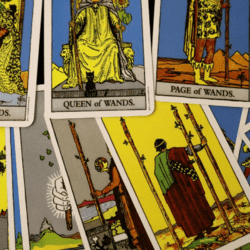Recently, there have been discussions in heathen groups as to how our behavior influences our values. The standards we hold ourselves to are based on our own concepts of what is moral and just. There are a few common threads, though, that that most can agree on. One is honor. Striving to be our highest and best is to accept our own failings and misgivings in an honest and objective way – for we cannot strengthen what we do not recognize.
In the past there were traditional, communal ways of addressing whether those shared ethics had been upheld or whether they had been violated. Echoing back to the god of justice through mediation, Forseti, the parliamentary common law known as the Althing was once practiced to ensure both civil and criminal offenses were rectified in a fair and just way. Even after Iceland’s union with Norway, the Althing was still held seasonally. During the time of public mediation, wrongs that were rectified via a repayment system known as ‘weregild,’ whereby the person who had committed the injustice would pay the offended, or their family, a price that was equal to or greater than the value of the crime committed. In upholding this tradition, the community felt that their values were kept in check. The payment made was usually paid in the form of cattle, as they were the most valuable livestock and frequently used as a measure of exchange in ancient times. Interestingly, the rune Fehu represents this type of exchange in its attribute of movable wealth. The gods themselves enacted weregild when it was deemed appropriate, and examples can be found in the lore.
In the story ofSkaði (Skadi), we learn that she approached the Asa-gods and demanded retribution because they had slain her father. An agreement was reached between Skaði and the Aesir, and she was allowed to choose a husband from among them, but it was stated that she must choose him by the look of his feet. In an effort to choose Baldur, she chose the feet that were most perfect – which actually belonged to the seaside godNjörðr (Njord). All of that sea salt must’ve done him wonders! In this example, we’re provided with a picture of how honor was restored and restitution made, but the repayment for it, even though it is valuable, may not be exactly what we want. Njörðr and Skaði could not abide each others’ homes, each preferring the natural setting of where they had always lived, Njörðr by the sea and Skaði in her homeland in the mountains. The two eventually separated and remained living apart. This shows, however, that the gods themselves recognize the need to make amends and keep their honor intact even if it means coming to a compromise. Njörðr and Skaði did not stay married, and he was not the one that she had set her heart on. Ultimately, though restitution was made, it was not enough to take the place of her father, to whose homeland she eventually returned.
We now have formalized laws with jurisdiction over crimes, and the court system has its own sentencing procedure. It is becoming common for inmates to discover heathenry in prison. Several larger heathen organizations have established prison outreach programs to help provide written materials to those that are incarcerated. The goal is to provide valid information that discourages any undertone of white supremacy, and instead replace it with ethical values that are inherent to heathens, such as honesty, working personally to build honor, and remaining diligent in the pursuit of excellence through perseverance and determination. When heathen inmates leave the prison population, it is hoped they will exit with better judgment. If they’ve had access to good information during their incarceration, then it can be a foundation from which they can continue to build.
However, what happens when an injustice is committed that doesn’t legally qualify as a crime towards another person? Technically, there is no longer a parliamentary democracy of our peers that will hold us accountable unless a crime according to modern laws has been committed. It is up to us to maintain a higher level of accountability for ourselves and put right what we’ve done damage to. Many heathens aim to live by their own personal code of honor, whether those ethics be those they developed on their own or a preset group of values such as the Nine Noble Virtues. When we’ve violated our own principles, either consciously or even inadvertently, we become directly responsible for restoring our honor the best we can. This requires an honest objectivity, self-awareness, and willingness to make any necessary amends. It takes a great deal of truth to examine our part in having wronged someone else, and there are no guarantees that what we offer as repayment will be accepted. This process has nothing to do with moralizing ourselves into any set practice of doctrine or dogma. It really boils down to our ability to fairly look at ourselves and our actions. Restoring our honor when it’s needed, and making amends, is sometimes necessary, and though we may be the only ones holding ourselves accountable, the value of it remains. No one is perfect, and everyone has wronged another person. We all sometimes fall into less than stellar circumstances where we play a part in what happens – and the subsequent outcome. The importance is recognizing when it happens and our responsibility in working to make it right. Taking that measure of accountability and maintaining our honor, however, are important parts of putting our best foot forward.
Heathen Woman is published on alternate Fridays. Subscribe via RSS or e-mail!













